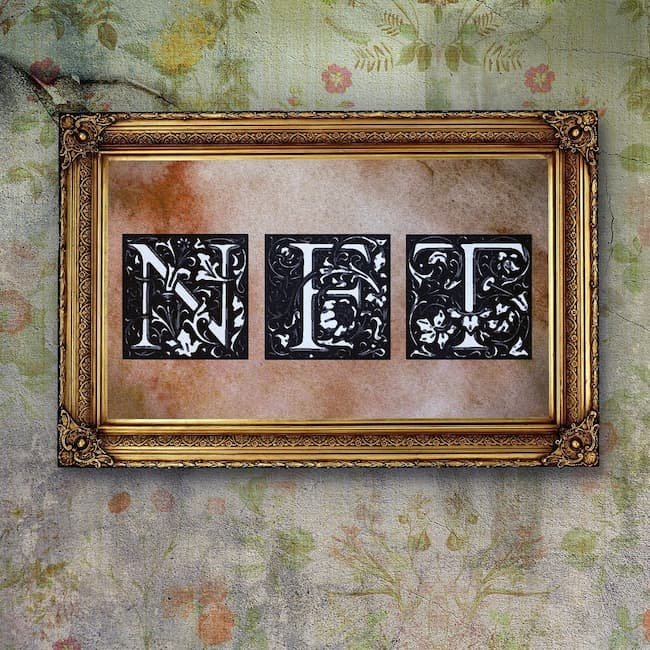Publications

Forbes Summer 2022 Article Summary
A summary of topics discussed in Forbes over the summer of 2022. Topics include; Cryptocurrency Taxation Changes, Expatriation, Mental Health in Estate Planning, and Trusts in the age of the Inflation Reduction Act.

What Is A Trust?
What is a Trust? A Trust is created when you transfer the financial benefit of property to a third party while keeping the legal ownership and control by appointing themselves, a financial institution or another individual as the Trustee. In short, a Trust is set up by a Grantor, managed by a Trustee, and benefits the beneficiaries. Separate people can hold each of these roles, or the same person can hold all three.

What Is A Will?
Why should you have a Will?
A Will makes the transfer of your personal and real property according to your wishes into an orderly and seamless process at your death. The Will can be as simple or as complex as your desires require; but in all cases, it should clearly define what your assets are, to whom you wish those assets to go and who you nominate to administer your estate. This is the short answer to the question as to what a Will is. If you have other specific questions, you should consult your estate planning professional.

Why Its Important To Write A Good Thank You Letter
What we were all told as children—it is important write a prompt thank you letter for any gifts received, even that eye-searing sweater you hide in the closet. This goes doubly so for charities who receive a donation. Donors should check whether the documents from the charity acknowledging their donation includes the amount of cash donated, a description of non-cash donations, whether there are any goods and services provided in return for the donation and what the estimated value of those goods and services might be.

Estate Planning During A Bear Market
In April of 2022, the stock market officially entered Bear Market territory. Bear Markets occur when the market declines more than 20% below a recent market high, in this case the 52-week market high. Why the market has declined has been attributed to many different factors, such as inflation, the energy shortages, the War in Ukraine, and so on – each contributing to investor’s fears and a desire by investors to cut their losses. In the short term, the volatility of the markets will remain. Estate planning is a long-term strategy, so what about the long term?

10 Ways to Prepare to Help Your Parents Manage Their Finances
10 actions you can take that help open the lines of communication and determine where you can play a role in managing your elderly parents’ finances. Asking questions about their long-term financial plans and what they've done to prepare for them will give you a better sense of how you can assist them with real estate, investments, and collections.

Common Client Tax Planning Problems Cheat Sheet
Although there are many new and interesting tax planning techniques, sometimes it is the tried-and-true standards that are overlooked, that may best provide the solutions to estate and income tax problems. Here is a useful list of estate planning scenarios and possible solutions.

Executive Order Makes Policy On Crypto Less Cryptic
An executive order outlining six key priorities focused on American competitiveness, central bank digital currencies (CBDCs), and proactive legislation. The more proactive approach to the growth and regulation of the digital asset sector in the U.S. is an acknowledgment of the hundreds of thousands of investors looking to embrace crypto and web 3.0 in U.S. markets.

Web 3.0: Planning For Art NFT Collectors
NFTs are popular in applications that require unique digital items, including crypto art, digital collectibles, and online gaming, where some guarantee of authenticity and ownership history adds value. As far as art is concerned, this space is developing rapidly. This article takes a look at the territory.

Estate Planning For Foxes And Hedgehogs
Most estate planners think like hedgehogs. They know everything about estate planning. That works well for most clients, but others need the more difficult help of a fox, especially entrepreneurs (and people with attention-deficit/hyperactivity disorder).
In other words, clients who make impulsive, sub-optimal decisions, whose choices are guided by smaller, immediate rewards instead of larger, long-term ones, and who make such errors in their planning, organization, self-regulation, and prioritizing when choosing courses of action.

Reporting Requirements For Cryptocurrencies And NFTs Begin In 2023
Planning on acquiring, digital assets, here is what to expect before the end of 2022?
Crypto Exchange, will collect a Form W-9 from you (seeking your taxpayer identification number) transactions subject to the reporting will include not only selling cryptocurrencies for fiat currencies (like U.S. dollars), but also exchanging cryptocurrencies for other cryptocurrencies, Form 8300 reporting of cash transactions will presumably follow the same effective dates.

Can NFTs Save a NASCAR ARCA Career?
Those who create and collect art can try to ignore the impact of NFTs but they can’t ignore how NFTs fit into the current Intellectual Property (IP) rights. In order to take advantage of the market, it is necessary to understand what NFTs are and are not.

Estate Planning For Foxes, Entrepreneurs And People With ADHD
So, here are some helpful tips for you, if you are an entrepreneur or a person with ADHD and need to do some estate planning (or any type of decision making for that matter):
• Write it down: Writing your goal and your scenario down requires you to think through the process. Remember, if it is not in writing, it does not exist (at least as far as the probate court is concerned).
• Make snap decisions: In times of crisis, it is better to do something, even if it not the optimal thing, than to do nothing.
• Have a dictator: Find someone to whom you declare your goals and objectives. Give them the right to impose firm standards from the outside.
• Record what you have learned: When you do get something done, record it and learn from it, good or bad.

People Will Pay For Comics NFTs: Why Does It Matter?
NFT collectors value the ownership and control of these digital assets, often above their market value so estate planners must utilize and take advantage of unique estate planning techniques, such as a scenario planning process, illustrating for the clients, the process used to preserve the ownership of these assets, as if we were telling a story, in which the desired ending satisfies the client’s needs.

Have an S Corp From Before 1996? Tax-Free Conversion May Be Possible
An outline of The Build Back Better bill’s key tax provisions that affect partners, partnerships and other passthrough entities such as S Corps

The Basics: Estate Planning In Confusing Times
Estate Planning is a process -- a process of maintaining and protecting your control of assets during your lifetime, and transferring your assets to your beneficiaries at death. The steps in the Estate Planning process are:

New Report On Ownership And Professional Management Of Family Enterprises
Estate planning is all about strategy, advocacy and marshalling both financial resources and competent management resources. There is a great deal of value in this report, especially for estate planning advice for both present and future owners of family enterprises.

You Could Be Immortal: Estate Planning for Digital Assets

Climate Change is Code Red for Humanity: Is ESG Investment Code Red for Fiduciaries?
Confusion lies in which ESG factors in investing a fiduciary should consider. Factors that directly benefit a beneficiary of the trust are allowed, but not factors that benefit a third party based on a moral or ethical basis, and only indirectly benefit the trust beneficiaries. The assumption that an ESG investment will always outperform a non-ESG investment alone can’t justify prioritizing ESG factors. More is required when drafting trusts and other documents.

Feeling Good? James Brown Estate Inches Toward A Resolution
Could James Brown have avoided the lengthy controversy that is still going on in the South Carolina courts? Perhaps not, but helping musician clients gain a firm understanding of how their copyrights can be transferred, and who gets their termination rights, coupled with some creative planning, makes it less likely to result in long-term litigation.
